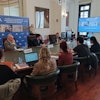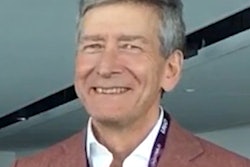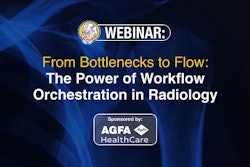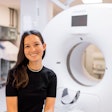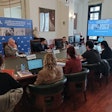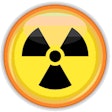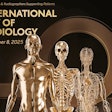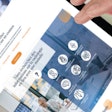
Author's disclaimer: Rad-U-Like is a figment of my imagination. Any resemblance to products existing or under development is purely coincidental.
Rating websites are big business these days. Not many of us would book a hotel, restaurant, or holiday without first checking the online reviews and finding out what others have thought of it. So far, healthcare has been relatively spared, but for how much longer?
In the U.K., sites such as iWantGreatCare.org have been soliciting and publishing patients' views of individual doctors for about a decade. It's fair to say that doctors have not exactly welcomed this development, and, in any case, uptake has been relatively slow, perhaps partly because patients themselves recognize that a clinical encounter is not exactly the equivalent of other transactions they might make. With the exception of a few interventionalists, radiologists have not so far attracted many reviews on these sites, but my proposal could change all that.
 Dr. Giles Maskell is a consultant radiologist in Truro, U.K.
Dr. Giles Maskell is a consultant radiologist in Truro, U.K.In diagnostic radiology at least, the radiologist's primary relationship is usually with the referring clinician rather than the patient. So rather than asking the patients, perhaps we should be looking to the clinicians for our reviews. In my proposal, every report issued by a radiologist would include a request for a review from the referrer. Before being allowed to close the report after reading it, the clinician would be obliged to rate it on a scale ranging from "highly useful" to "unhelpful or wrong."
Stick with me here. I know what you're thinking: Why on earth should we ask the clinicians to rate us in this way? Isn't it enough that certain colleagues, with the patient in front of them and all the advantages of hindsight, are already quick to tell us when we've got things wrong? Isn't this terribly one-sided? Yes, it would be, but happily Rad-U-Like has a second component that may appeal a little more to the radiologist.
Every single report will also include the opportunity for a reciprocal rating by the radiologist in response to the following question: "How useful was the clinical information provided with this request?" The scale of options might range from "very helpful" through to "irrelevant" and "frankly misleading." Needless to say, this rating would not appear on the report itself but would be collated and analyzed separately.
Wealth of data
Notwithstanding the excellent work previously published on the desirable structure and content of a radiological report, Rad-U-Like would in a very short space of time provide an undreamt-of wealth of data, allowing us once and for all to answer those perennial questions about just how long the ideal report should be and even whether certain words or phrases automatically devalue the report in the eye of the recipient.
In addition, of course, we would be able to produce league tables of both radiologists and referrers. And who can resist a league table? Wouldn't it be great to be able to demonstrate conclusively (and to publicize the fact) that Dr. X's referrals are the worst in the area? Or that chest physicians consistently outperform rheumatologists, for example?
We could even aim to change behavior by introducing awards for those whose referrals attract the highest scores -- the Rad-ilicious award -- as well as for those who consistently provide the most positive assessments. And which radiologists wouldn't want to be top of the table themselves for the perceived value of their reports?
I grant you that we might need to factor in some adjustment for case mix to recognize the fact that the reports of some types of studies are inherently more likely to be considered useful than others, and the fact that some groups of radiologists send most of their reports to particular groups of clinicians. I won't be too specific here, but I think you know what I'm getting at.
So here's my challenge to the radiology community: We can wait for a tidal wave of adverse reviews to drown us, or we can get on the front foot and get our retaliation in early.
Ladies and gentlemen, I offer you Rad-U-Like.
Dr. Giles Maskell is a consultant radiologist in Truro, U.K. He is past president of the U.K. Royal College of Radiologists. Competing interests: none declared.
The comments and observations expressed herein do not necessarily reflect the opinions of AuntMinnieEurope.com, nor should they be construed as an endorsement or admonishment of any particular vendor, analyst, industry consultant, or consulting group.



